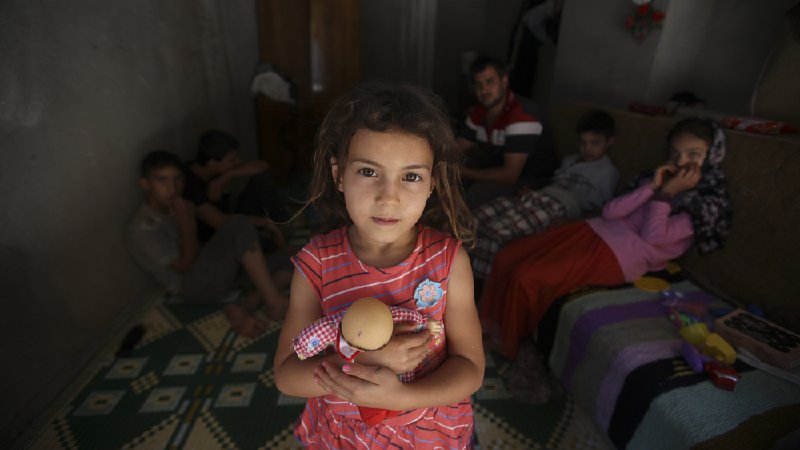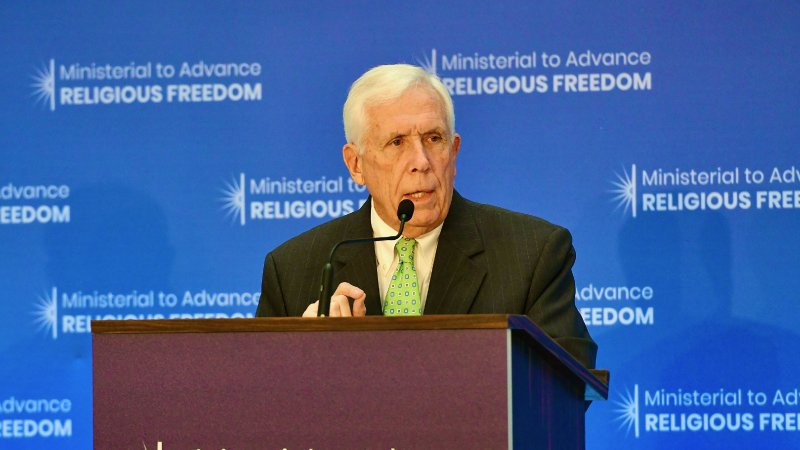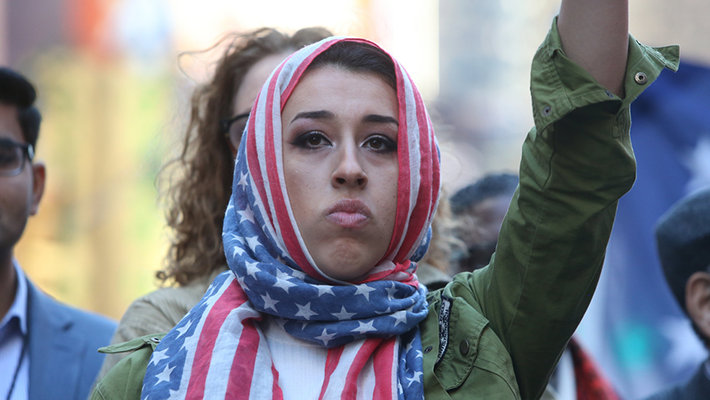
-
HOME
-
WHAT IS STANDOur Mission Our Values Our Help Contact
-
WHAT WE FIGHT FORReligious Freedom Religious Literacy Equality & Human Rights Inclusion & Respect Free Speech Responsible Journalism Corporate Accountability
-
RESOURCESExpert Studies Landmark Decisions White Papers FAQs David Miscavige Religious Freedom Resource Center Freedom of Religion & Human Rights Topic Index Priest-Penitent Privilege Islamophobia
-
HATE MONITORBiased Media Propagandists Hatemongers False Experts Hate Monitor Blog
-
NEWSROOMNews Media Watch Videos Blog
-
TAKE ACTIONCombat Hate & Discrimination Champion Freedom of Religion Demand Accountability
2nd International Religious Freedom Summit Offers an Arena For Peace
They came from Finland, Canada and the U.K. They came from Afghanistan, Israel and India; from the United States, Pakistan and Tibet; from Indonesia and Russia and Turkey and Uzbekistan and scores of other nations. Members of Parliament and Congress from both sides of the aisle came, along with religious leaders, royalty, mayors, business executives and private citizens. Those who had been persecuted for their faith came, along with those who advocate on their behalf. They all came to teach or be taught about the state of religious freedom in the world and they all came determined to do something about it.
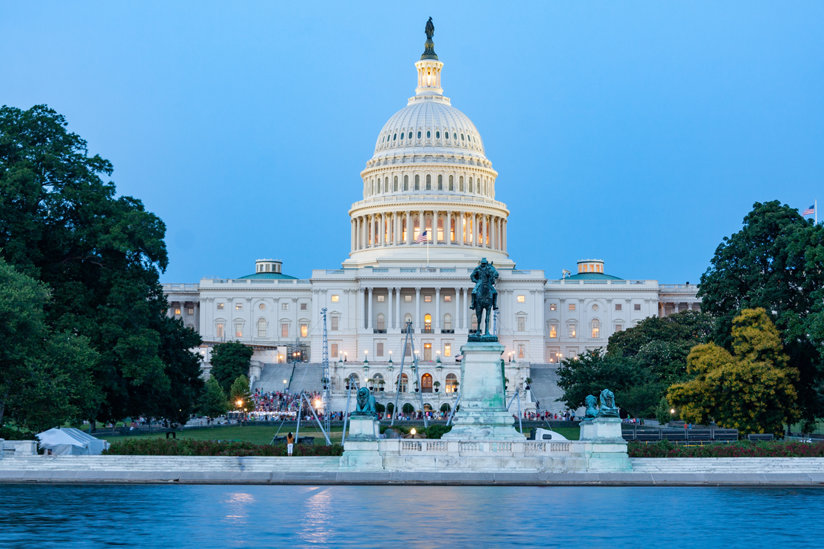
The over 1,000 attendees in Washington, D.C., the thousands more in attendance via Facebook live stream, and the over 80 distinguished speakers, panelists and seminar leaders at the 2nd Annual International Religious Freedom (IRF) Summit came with sleeves rolled up and ready.
There were no lines of demarcation between political parties, policies or beliefs here. East met with West, Muslims conferred with Jews, Democrats sat with Republicans, and for 30 hours over the three-day summit, all were in agreement that international religious freedom has something to do with all of us. Every panel discussion, speech and networking resource meeting addressed the present situation wherein almost 80% of humanity live under increasingly repressive, restrictive and dangerous conditions when it comes to their freedom to practice their respective faiths.
“We’re seeing rising hate in many places—including antisemitism, anti-Muslim sentiment, and attacks on Christians, religious minorities, and people who choose not to believe.”
Secretary of State Antony J. Blinken acknowledged the crisis in his remarks to the Summit, noting that “we’re seeing rising hate in many places—including antisemitism, anti-Muslim sentiment, and attacks on Christians, religious minorities, and people who choose not to believe. This just makes this work even more important.
“We can’t do this work without our partners across civil society. They lift up the voices of those suffering from persecution. They open our eyes to atrocities and abuses on the ground. And they offer support—shelter, a safe haven to practice their faith openly, or a platform to speak up—to those suffering. I’d like to thank our partners across more than 35 governments and multilateral organizations, who have helped monitor religious abuses and respond collectively and, in so doing, multiply our shared reach.”
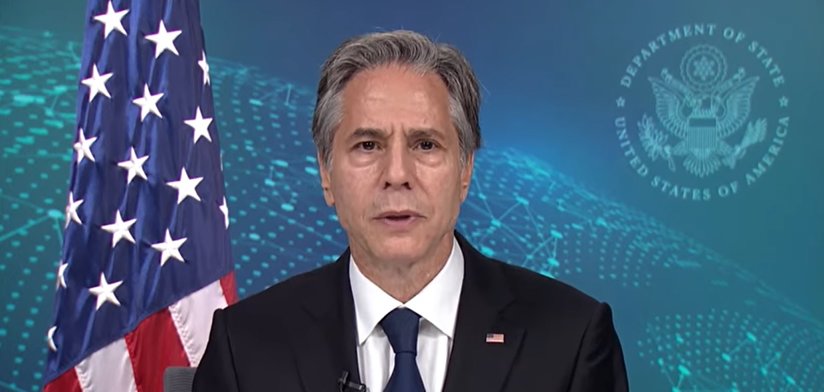
The Summit, co-chaired by former Ambassador at Large for International Religious Freedom Sam Brownback and Katrina Lantos Swett, President of the Lantos Foundation for Human Rights, featured a host of topics including:
- What it is like being a journalist exiled from Turkey
- Solidarity for victims of persecution
- Religious minority women: overcoming persecution
- The illusion of equal citizenship in Pakistan
- Ukraine—religious freedom under fire
- The burning of Christian churches in Chin State, Burma
- Muslim women and the hijab ban: a violation of religious freedom
- Paradigm shift: a cross-cultural, common-values approach to rejecting antisemitism and embracing the Jewish story
- Asylum for victims of religious persecution
Ambassador Brownback pointed up the importance of summits such as these to enlighten, empower and solve. But while acknowledging that strides for religious freedom have been successful over the decades, he stated the level of persecution has “increased substantially.”
The Summit not only highlighted threats to freedom of belief, worship and thought throughout the world, it brought together a powerful coalition of passionate voices.
The Summit concluded with the presentation of the IRF Impact Awards “to dedicated individuals who have served the global movement to advance religious freedom by taking responsibility, playing a leadership role, and taking courageous actions to confront tyranny, persecution, and even genocide.”
This year’s awardees are:
- Civil Society Advocacy Leader: Enes Kanter Freedom, NBA free agent and religious freedom advocate
- Civil Society Business Leader: Lynn Zovighian, Managing Director, The Zovighian Partnership
- Civil Society Youth Leader: Jamaima Afridi, journalist and women’s rights activist
- Member of Parliament: Lord David Alton, Baron Alton of Liverpool
- Government Leader: Nadine Maenza, IRF Secretariat President and former chair of the U.S. Commission on International Religious Freedom
The three-day Summit not only highlighted threats to freedom of belief, worship and thought, it brought together a powerful coalition of passionate voices to right these wrongs and establish a stable path to true freedom of religion throughout the world.
As Secretary Blinken observed, “Freedom of religion is a human right. It’s a vital part of our identity: to follow whichever belief system we embrace, or to choose not to follow any belief system at all; to practice our faith in public, or in private; with our loved ones, our communities, or by ourselves… We know the world is safer, and more stable when people have the chance to practice their faith freely and to contribute their fullest selves to their community’s success.”
As the Holy Quran instructs, “If God had pleased, he would have made all mankind one religion. But He hath done otherwise.” And: “Wilt thou force men to believe when belief can come only from God?”
Similarly, Scientology Founder L. Ron Hubbard wrote, “seeking to undermine or attack the religious faith and beliefs of another has always been a short road to trouble.”
Too many people with too much hate in their hearts have led too many of us down that short road to trouble. With more opportunities to share and do, like this IRF summit, more of us can make the right choice between bigotry and tolerance when we get to that crucial fork in the road.






